Spelling Skills Alphabet Worksheets for Ages 5-7
11 filtered results
-
From - To
Introducing our "Spelling Skills Alphabet Worksheets for Ages 5-7," designed to boost your child's literacy and spelling fluency. These engaging worksheets utilize fun activities that encourage early learners to recognize letters, sounds, and word formations. Each worksheet focuses on essential spelling skills, seamlessly combining creativity with education, perfect for home or classroom use. Children will practice letter identification, phonetics, and word building through vibrant illustrations and interactive tasks. As they progress, they'll develop confidence in their language abilities. Ideal for young learners, these worksheets provide an excellent resource for parents and educators aiming to enrich their child's foundational literacy skills.
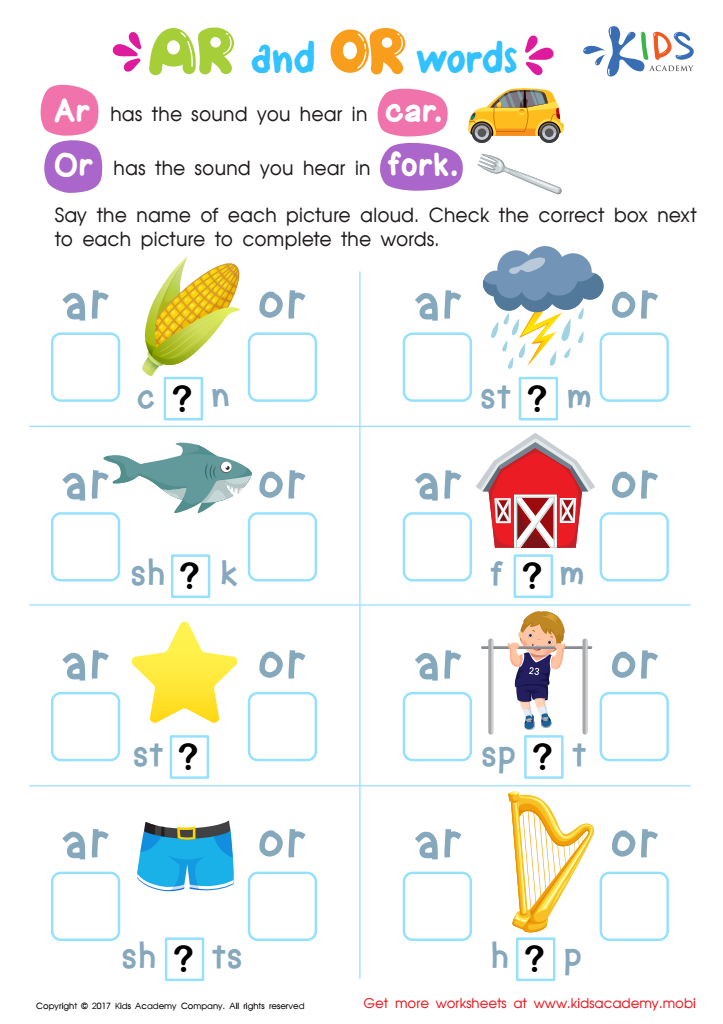

Ar and Or Words Phonics Worksheet
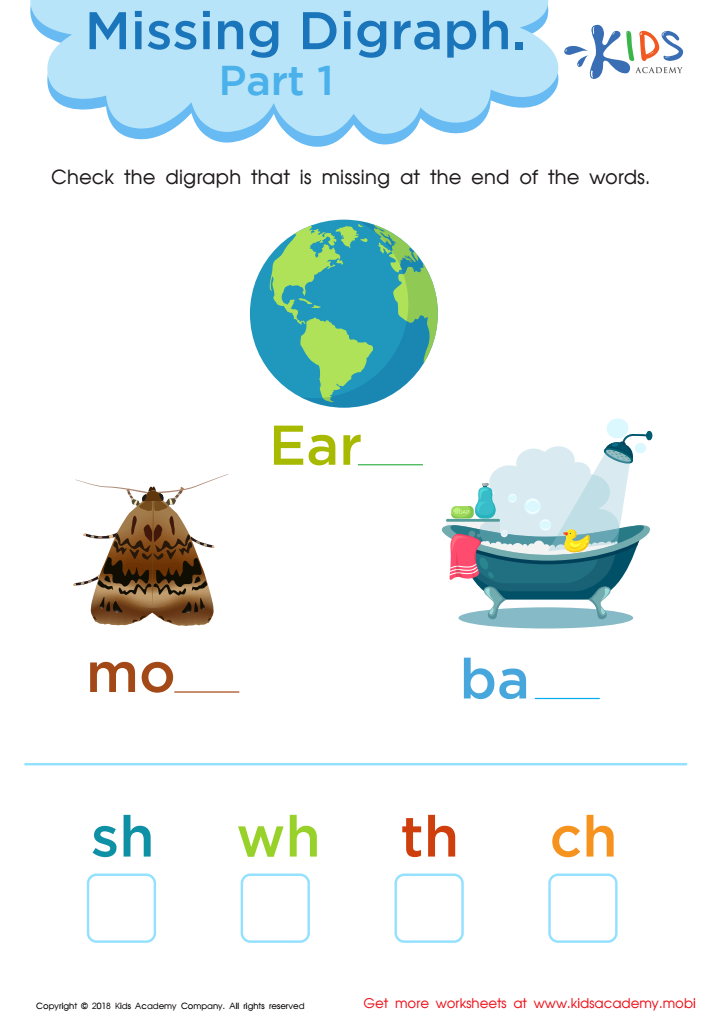

Missing Digraph: Part 1 Worksheet
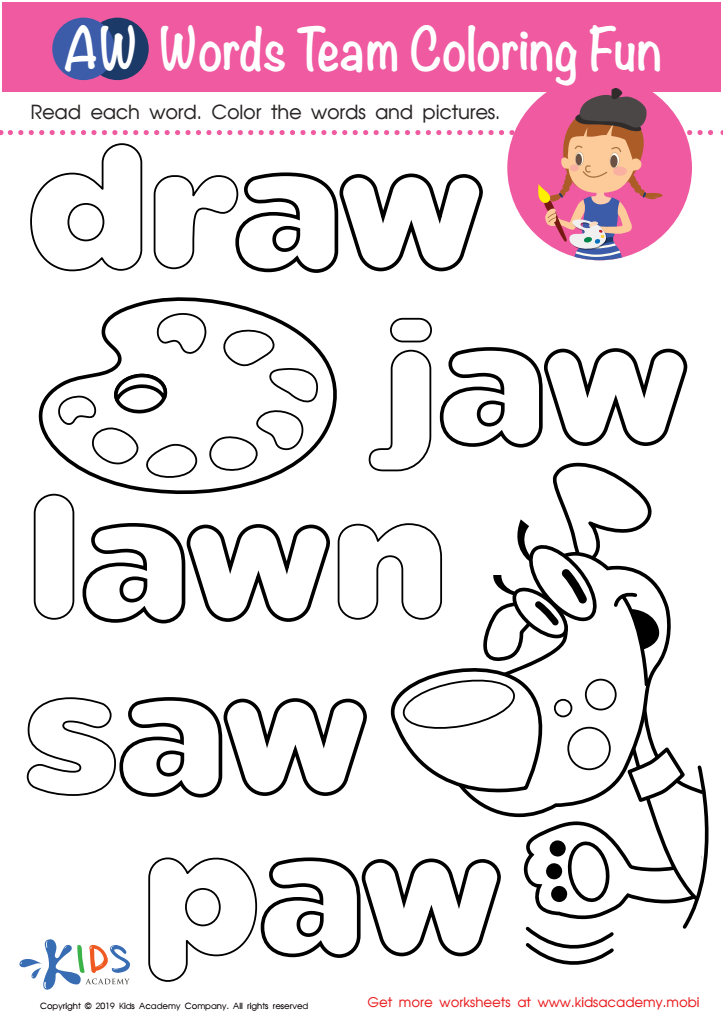

AW Words Team Coloring Fun Worksheet
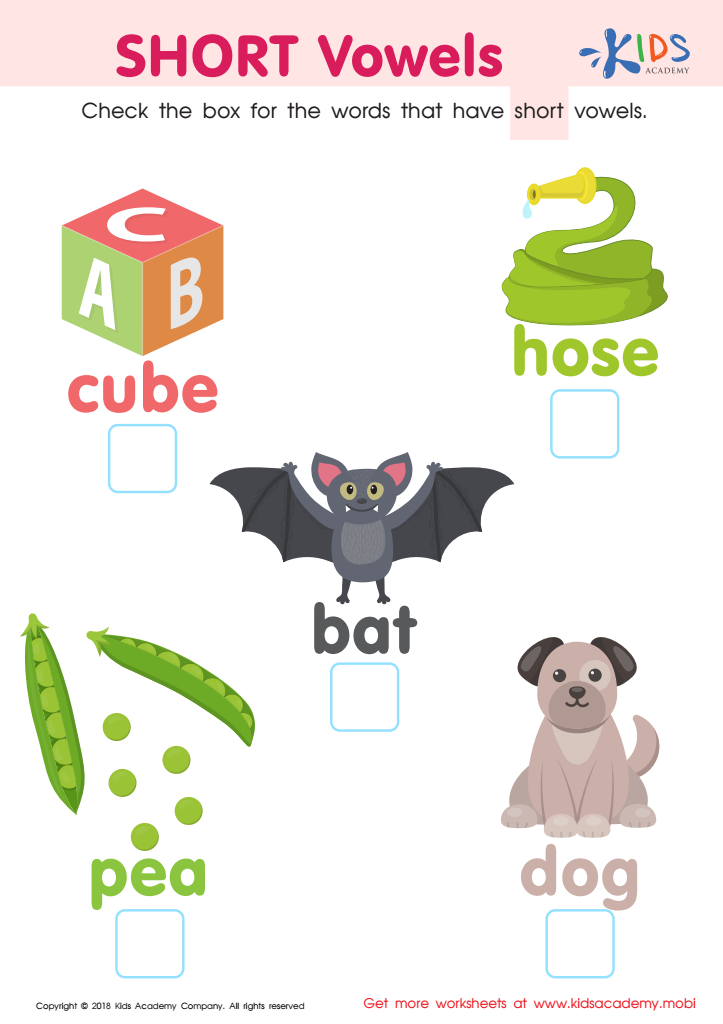

short vowels Worksheet
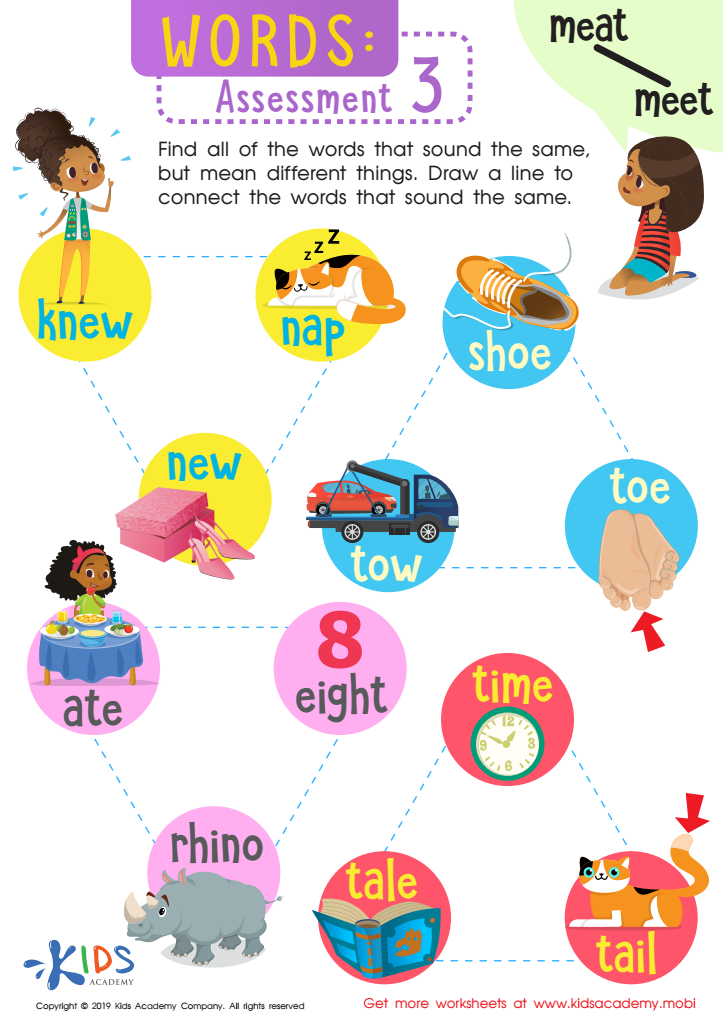

Words: Asessment 3 Worksheet
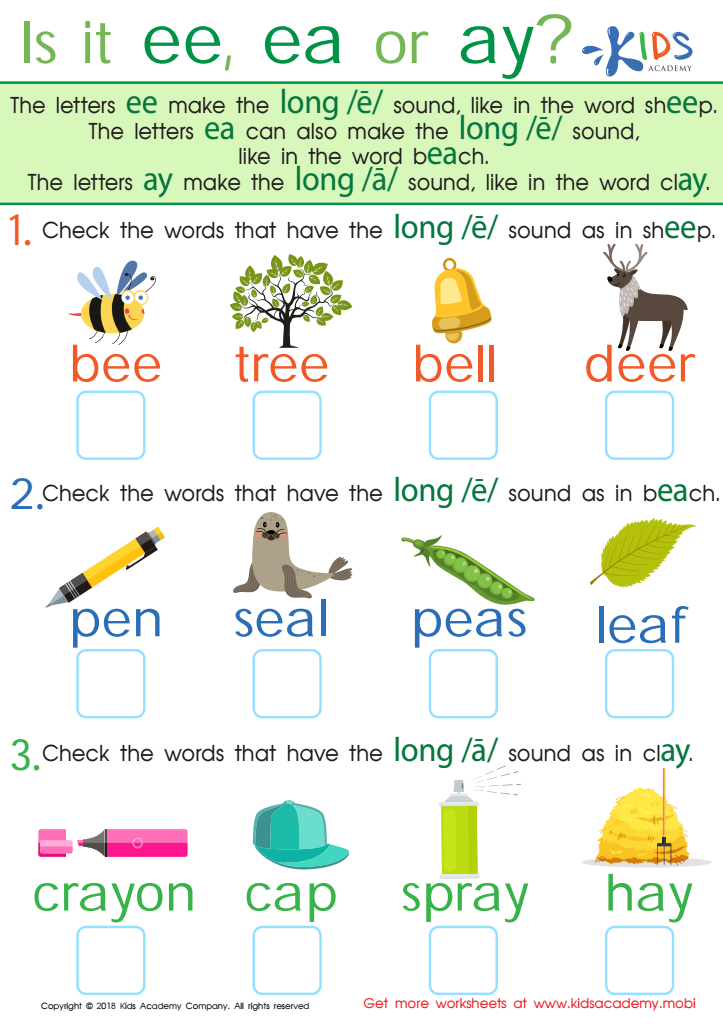

Is It EE, EA, or AY? Worksheet
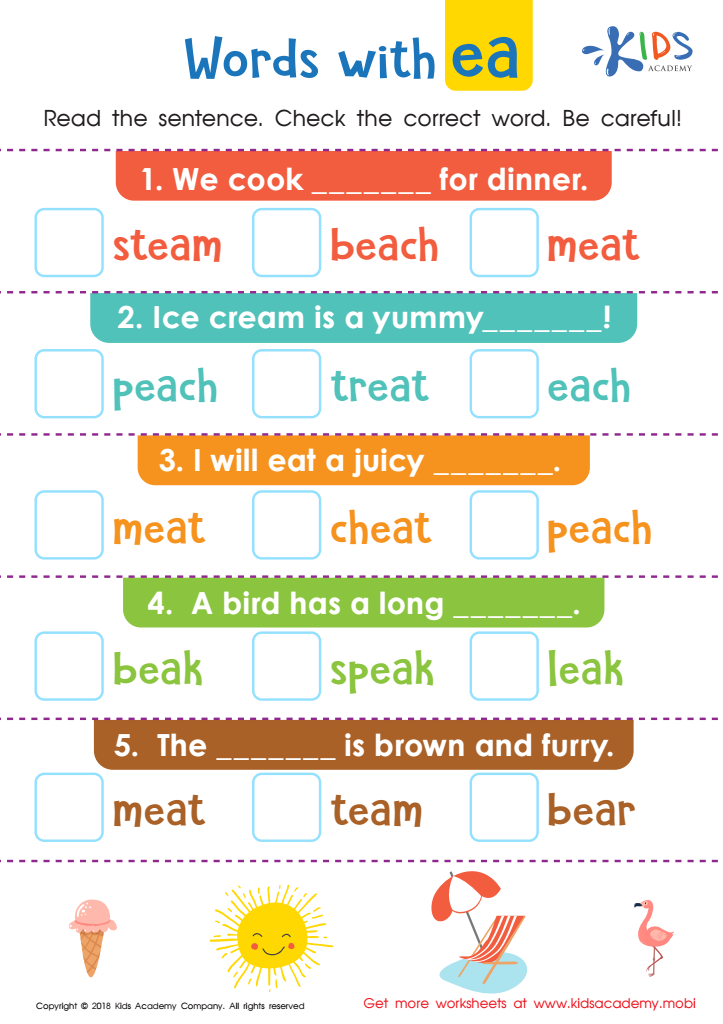

Words with ea Worksheet
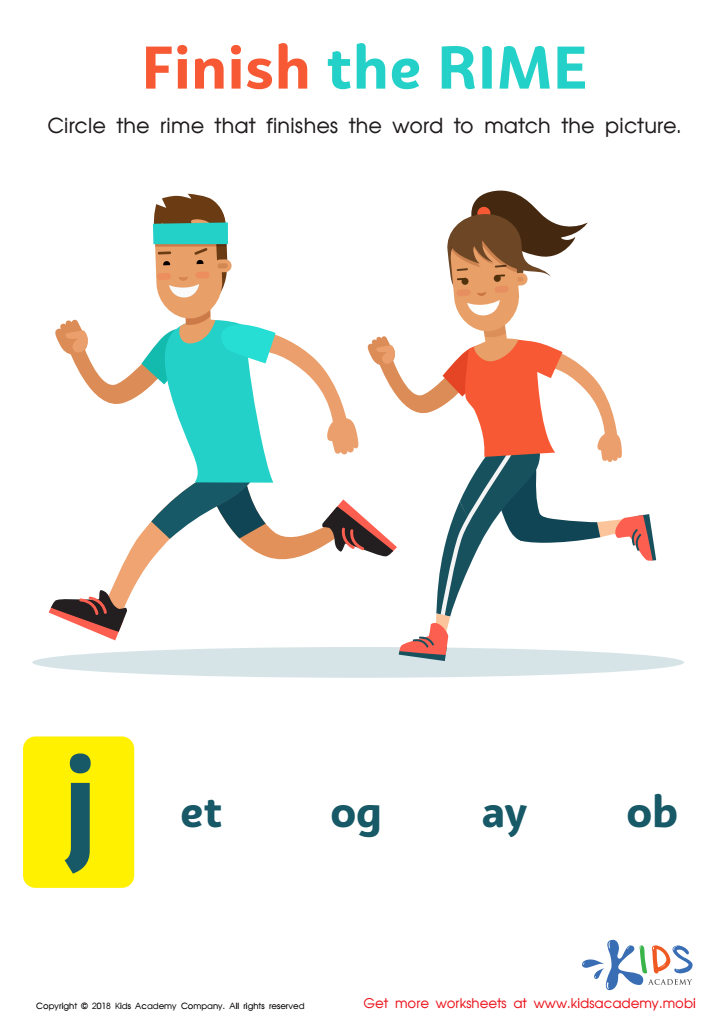

Finish the Rime Worksheet


Words with sound f Reading Worksheet
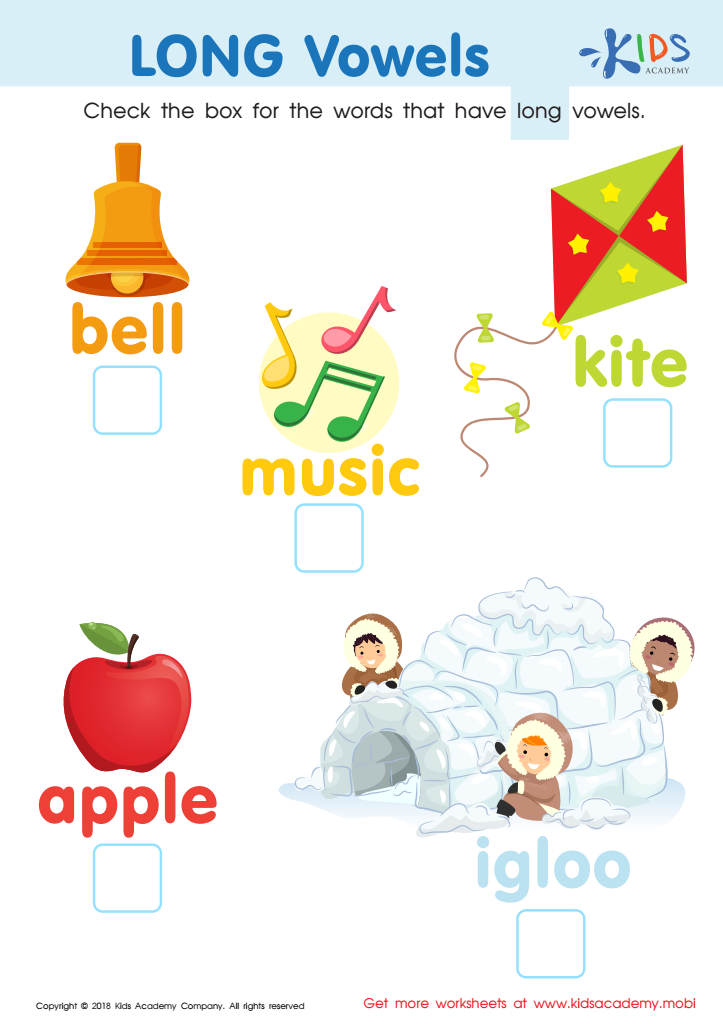

long vowels Worksheet
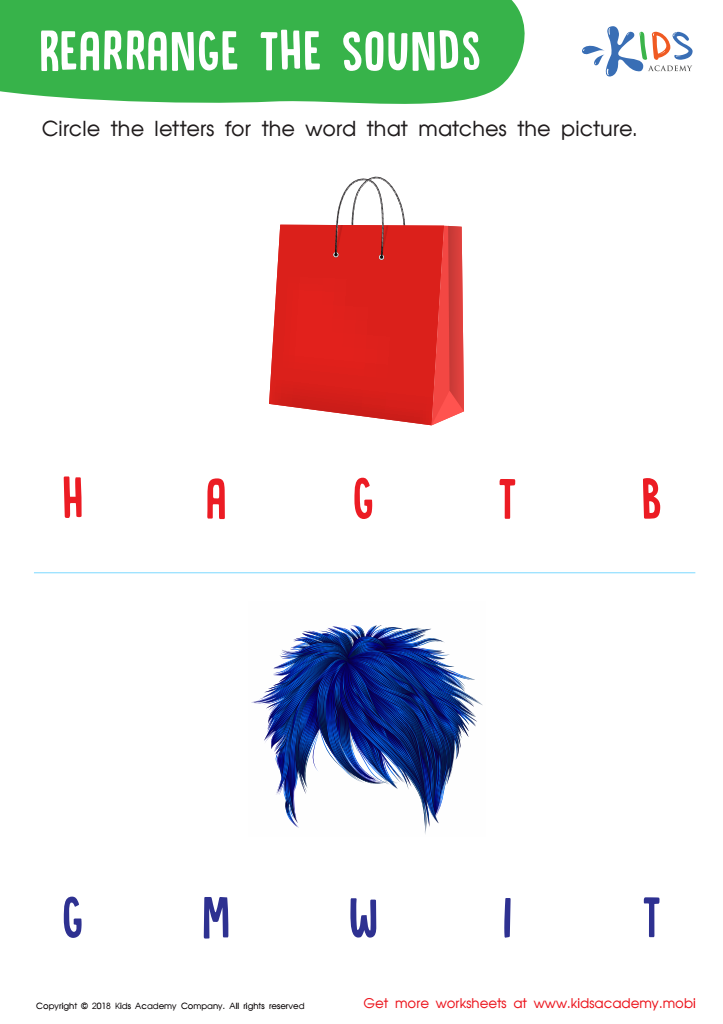

Rearrange the Sounds Worksheet
Spelling skills are foundational to literacy and language development in young children, typically aged 5-7. Parents and teachers should prioritize these skills as they are critical for reading and writing proficiency. First, developing spelling skills fosters vocabulary growth. As children learn to spell words correctly, they become more familiar with their meanings and usage, enhancing their vocabulary.
Furthermore, mastering spelling contributes to confidence in written communication. When children can express themselves clearly and accurately, they are more likely to engage in writing activities, developing their creativity and critical thinking. Moreover, effective spelling education during these formative years helps to reinforce phonemic awareness—the understanding that words are made up of sounds—which is essential for developing reading skills.
Additionally, learning spelling within a structured framework, like the Spelling Skills Alphabet, helps build cognitive skills, including memory and attention to detail. This can lead to greater academic success in various subjects. Lastly, encouraging spelling practice promotes parental involvement, fostering a supportive learning environment at home. Overall, prioritizing spelling skills early on lays a crucial foundation for lifelong literacy and academic achievement.
 Assign to My Students
Assign to My Students




















